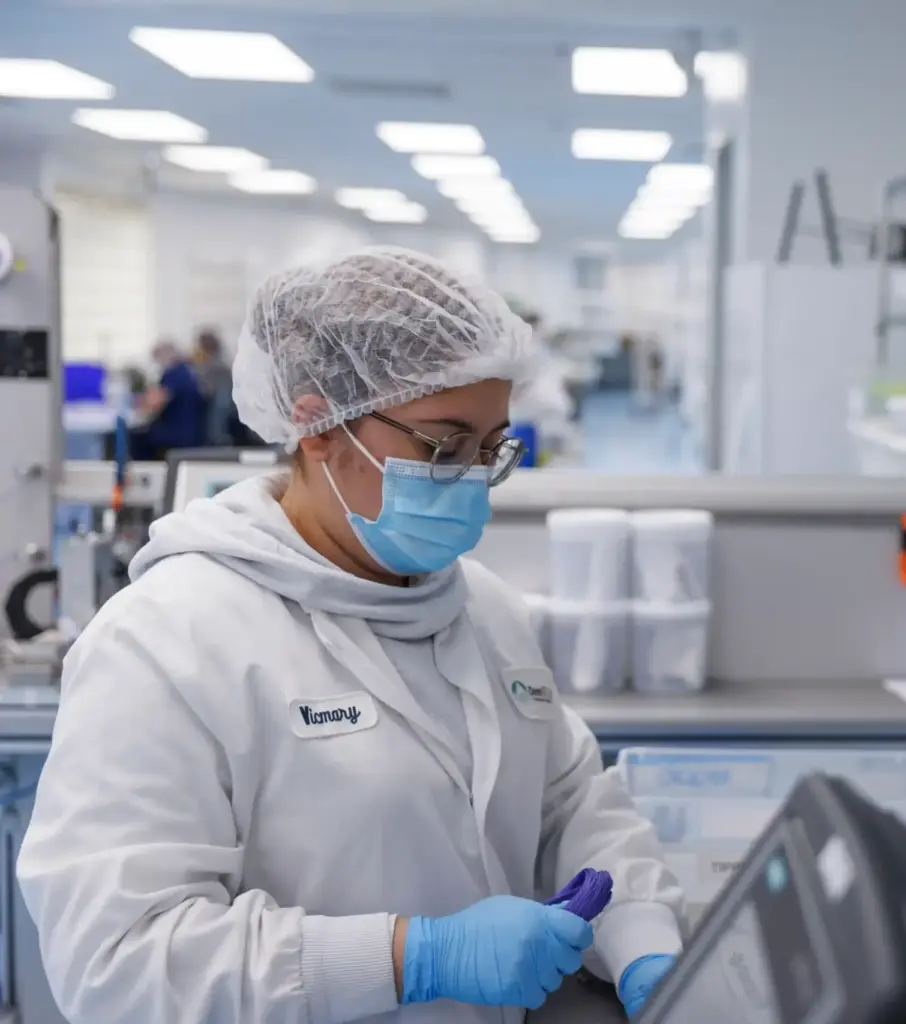South Florida manufacturing is more robust than you think. Just ask Demetech.
By Doreen Hemlock
CEO Luis Arguello Jr. faces a paradox at work every day. His family’s South Florida manufacturing company Demetech exports to 135 countries around the world, but finds it hard to sell inside the United States.
Demetech makes surgical sutures and other medical supplies, employing some 500 people in a sprawling factory, warehouse, and office complex in Miami Lakes. Arguello says buyers overseas snap up Demetech’s sutures and surgical goods, perceiving the “Made in the USA” label as a symbol of quality and worthy of a premium because of its USA origin. Yet U.S. hospitals for years have been buying the bulk of their supplies from overseas, seeking to keep costs down and making it tough for smaller producers like Demetech to sell domestically.

“To break into the U.S. healthcare market was quite difficult for us, so we’ve focused on the international market,” says Arguello, whose Nicaraguan immigrant family developed Demetech starting in the 1990s. Indeed, many of Demetech’s competitors have moved production from the US to Mexico, he laments.
COVID-19 changed things temporarily. The pandemic disrupted global supply chains, leaving many U.S. hospitals scrambling for supplies, especially surgical masks. Demetech scaled up in 2020 to make masks for U.S. customers, employing more than 2,000 workers on three shifts at peak production.
“We went from never making a mask to becoming the largest mask factory in the U.S. in about 90 days,” says Arguello. “Why? Because we had the manufacturing infrastructure for producing in this country, and we had skilled workforce in terms of engineering, regulatory and production processes.”

But even that emergency effort met obstacles, Arguello says. While the U.S. government encouraged domestic production, many U.S. buyers did not finalize purchases expediently, leaving Demetech with millions of masks on its shelves for months waiting for orders to come through, Arguello says.
Now, Demetech is building on its COVID experience to encourage U.S. hospitals to “re-shore” supplies longer-term, provided that orders are signed in advance. Arguello says it makes business sense for the hospitals to buy American, so they’re not caught flat-footed, should another pandemic take place.
Arguello says U.S.-made goods can compete with overseas supplies, even when labor costs are lower abroad, for several reasons. First, labor is just one component in the cost of medical supplies. Shipping and logistics often make up as much as 35 percent of total cost, so eliminating the need for transport from Asia or other distant locales means significant savings. Also, time is money, and producing domestically can slash delivery time, allowing companies to use “just-in-time” arrivals and trim inventory costs.
Then there’s what Arguello calls the “security” issue. COVID showed that hospitals pay a price for relying on a $1 item from China. “With the pandemic, hospitals ended up paying $5 or $8 for that $1 product. And they sometimes paid high prices for products that didn’t even work, just to get them. Some created huge inventories to not run out,” he says. “What we need is to support domestic production long-term.”
Manufacturing in South Florida
With all the talk of “offshoring” and the buzz over tech jobs these days, it’s easy to underestimate the strength of U.S. manufacturing. Yet Demetech’s 500 jobs and its ample sales to Italy, Vietnam, United Arab Emirates and another 130-plus countries shows that manufacturing remains a South Florida staple.
Miami-Dade, Broward and Palm Beach counties now are home to some 5,000 manufacturing firms, most employing 50 or less people. Miami-Dade alone has some 40,000 people working in manufacturing, many in medical, pharmaceutical, and aviation fields that employ skilled staff, says Matthew Rocco, president of the South Florida Manufacturers Association, based in Fort Lauderdale.




“People tend to think of manufacturing as a blue-collar industry, but there’s a lot of technology and clean-room environments involved in South Florida these days,” says Rocco. “The jobs are not just [for] machine operators anymore. It’s often an engineer, for example, who earns high pay.”
To be sure, South Florida manufacturers face challenges from rising costs for land, rent and salaries. Yet there are many resources to help producers move up the value chain, automating more tasks and employing more skilled labor, says Rocco. For example, the Manufacturing Extension Partnership Center for Florida and its Florida Makes program offer help with training, mentoring, and other services. And both the state and federal governments have programs to help manufacturers boost exports.
Demetech has developed its overseas sales, partly through programs from the U.S. Commerce Department and U.S. Export-Import Bank. The Ex-Im Bank provides insurance that helps companies get credit lines from banks to give overseas buyers more time to pay. Demetech has also participated in numerous Commerce Department missions overseas, which include matchmaking sessions with potential customers. Commerce selected Demetech for one of its top national export awards in 2010, an honor for the family that relocated from Nicaragua.
“We as immigrants are very big on the American dream,” says Arguello, who holds a degree in economics and politics from Notre Dame University. “And we believe in making things here in this country.”












